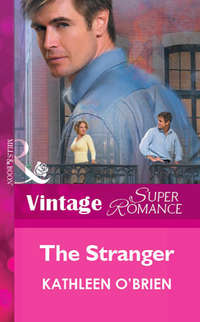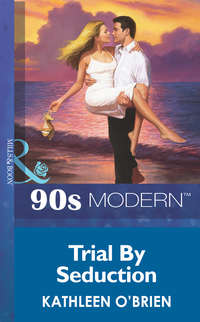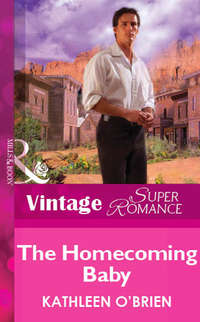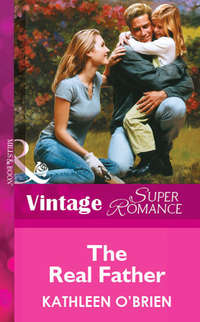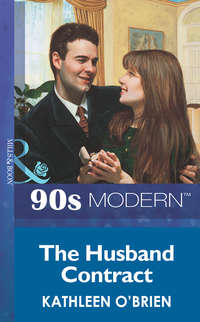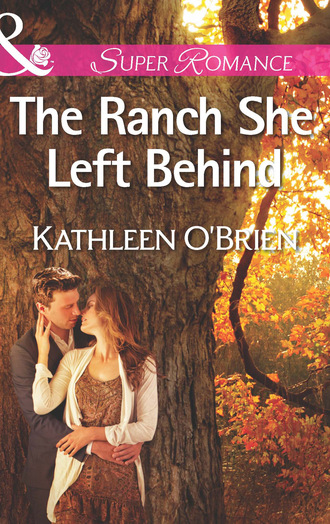
Полная версия
The Ranch She Left Behind

Who knows where a kiss will lead!
For one year, Penny Wright is doing whatever she wants. She’s returned to her hometown in Colorado—but not the family ranch—to cross items off her risk-it list. To her surprise, she’s braver than she thinks, because when she spies a hot newcomer doing something sweet for his daughter, Penny can’t resist kissing him on the spot. Unfortunately, he turns out to be Max Thorpe. Her new tenant!
Luckily, they both agree to be just friends. But with the sizzling attraction between them, “just friends” is hard. Maybe it’s time for Penny to add a new item to her list—a family with Max.
“You specifically wanted to kiss a stranger?”
Max tilted his head as he asked the question. The moonlight touched the mellow honey of his eyes and glistened against the white teeth as he smiled again.
He sounded curious, not shocked. Penny had been turning over various half-truths, wondering how she could explain her eccentric behavior without revealing too much. But to her surprise it suddenly seemed oddly easy to just tell the truth.
“Actually, yes.” She sighed. “It was on my list.”
His smile broadened. “Really.”
“Yes. I have a list. Not a bucket list, exactly. But a—” She couldn’t bring herself to say risk-it list, which suddenly sounded too cute and sophomoric. “Just a list of all the things I have always wanted to do but never got the chance.”
But that wasn’t really true. Any female who could walk on her own two feet could have done the absurd thing she did this morning. It wasn’t as if she’d asked for his permission or cooperation.
Still, when she caught the interested gleam in his eye, she couldn’t stop the feeling of pride in herself, in her boldness.
I could kiss him again!
Dear Reader,
Are you a risk taker? Do you dance on the cliff edge, laugh at the rain?
If so, you’re lucky! Some people—like me—were born more timid. We’re peacemakers, rule followers, boat steadiers. We have to work to be brave.
So when it came time to create Penny Wright’s story, I could easily empathize with her struggle to live a bolder life. At least Penny has a good excuse! The youngest of the three Wright sisters of Bell River Ranch, she was only eleven when her father killed her mother. It’s taken her sixteen years to emerge from that shadow.
For inspiration, Penny creates a risk-it list—a catalogue of little things she’s always wanted to try, but never had the nerve. She starts small, hoping to gather courage as she goes along.
But funny thing about life…it has a way of setting its own pace. Right at the stumbling start, she meets dynamic Max Thorpe and his motherless ten-year-old daughter. The two may hide it better, but underneath they are every bit as wounded as Penny herself. Suddenly she’s facing the biggest risk of all: the risk of losing her heart.
I hope you enjoy watching Penny find the courage, love and freedom she deserves. I hope, too, that your own risk-it list is full of exciting adventures. May every one make you stronger!
Warmly,
Kathleen O’Brien
P.S.—Visit me at my website www.kathleenobrien.com, or come by and say hi on Facebook or Twitter!
The Ranch She Left Behind
Kathleen O’Brien

www.millsandboon.co.uk
ABOUT THE AUTHOR
Kathleen O’Brien was a feature writer and TV critic before marrying a fellow journalist. Motherhood, which followed soon after, was so marvelous she turned to writing novels, which could be done at home. A rule follower who still hears the terrifying voice of Sister Alice in her head whenever she contemplates stepping over the line, she’s so glad she discovered romance writing. On the page, she can indulge her secret love of grand drama, goofy escapades and emotional whirlwinds without even getting her knuckles rapped.
MILLS & BOON
Before you start reading, why not sign up?
Thank you for downloading this Mills & Boon book. If you want to hear about exclusive discounts, special offers and competitions, sign up to our email newsletter today!
SIGN ME UP!
Or simply visit
signup.millsandboon.co.uk
Mills & Boon emails are completely free to receive and you can unsubscribe at any time via the link in any email we send you.
To Nancy Robards Thompson and Lori L. Harris, who always find a way to make the story come right—and keep me laughing even when I don’t sleep or eat.
And, of course, to Ann Evans, whose wisdom guides every word, just as it always did.
Contents
Chapter One
Chapter Two
Chapter Three
Chapter Four
Chapter Five
Chapter Six
Chapter Seven
Chapter Eight
Chapter Nine
Chapter Ten
Chapter Eleven
Chapter Twelve
Chapter Thirteen
Chapter Fourteen
Chapter Fifteen
Chapter Sixteen
Chapter Seventeen
Excerpt
CHAPTER ONE
PENNY WRIGHT JERKED awake, her heart pounding so hard it seemed to beat against her eardrums. What had happened? What was wrong? There’d been a sound...something big....
Oh, no... She sat up, tossing aside the covers, and swung her bare legs toward the floor. “Coming, Ruth!” She fumbled for the lamp switch. Had her aunt fallen again? “Don’t move, Ruth. I’ll be right th—”
But the act of sitting up was enough to start clearing the cobwebs out of her mind, and she knew there was no point in finishing the sentence. Ruth hadn’t fallen. Ruth couldn’t hear her.
Ruth had died two months ago.
The town house was silent around her. So silent she could hear the gears of the banjo clock move, preparing to sound the hour in the downstairs parlor...
So what noise had she heard just now?
It must have been something major, to wake her up like that, to make her heart hammer so hard. Or had it been just a dream noise? She dreamed a lot these days—dreams of flying, of dancing, of climbing mountains and riding wild palominos. Freedom dreams. It was as if her subconscious was trying to tell her to get out of this town house and do something.
But she just kept on staying. She was comfortable here. She was used to the quiet, the shadows, the isolation. Even if she sometimes felt like Sleeping Beauty inside her castle tower, at least she always felt safe.
The clock began to bong. One. Two. Three. Four. Then it fell silent again, leaving nothing but the eerie after-vibrations that pulsed invisibly up the stairs and made the air in Penny’s bedroom hum.
Instinctively, she glanced at her cell phone. More like four-thirty, really. The clock had kept perfect time while Ruth had been alive, but ever since her death it had fallen further and further behind, as if time had begun to slow and stretch, like warm molasses. Just a minute here, a minute there... But it added up.
Soon, the clock would perpetually be living in yesterday.
Oh, well. Too tired to worry, Penny fell back against her pillow. The larger noise she had imagined, it must have been a dream.
But then, with a cold shiver, she registered the sound of another noise—registered it more with her nerve endings than her eardrums.
A much smaller noise this time. A sneaky sound, a muffled creak... She gasped softly, recognizing it. The fifth stair from the top, the one that couldn’t be fixed. She’d always had to step over it on her way to bed at night, so she wouldn’t wake Ruth.
Someone who didn’t know about that little creak was, even now, tiptoeing up the stairs.
Her heart began to pound again. Someone was in the house.
Without hesitation, she slid open the nightstand drawer. Ruth, a practical woman to the core, had insisted that Penny keep protection beside her at all times, especially once the neighborhood began to deteriorate. A gun would have been out of the question—neither Ruth nor Penny liked weapons, or had any confidence that they could prevent a bad guy from getting hold of it.
Therefore, Penny kept a can of wasp spray beside her. Effective from a safe distance, nonlethal, and carrying the added benefit of surprise. Penny had found the idea almost funny and had bought it more for Ruth’s peace of mind than her own.
But now, as she saw the shadowy figure appear in her doorway, she sent a fervent thank-you to her practical aunt, who apparently was going to save her one more time—even from the grave.
Ben Hackney, their next door neighbor and a retired policeman, had warned them that, if they ever had to use the can, they shouldn’t holler out a warning, but should spray first and ask questions later. So Penny inhaled quickly, put her finger on the trigger, aimed and shot.
A man’s voice cried out. “What the fu—?”
She could see the figure a little better now—a man, definitely, dressed in black, his face covered. Her breath hitched. Covered! His eyes, too? If his eyes were covered, would the wasp spray have any effect?
But then the man’s hands shot to his face. A guttural growl burst out of him, a sound of both pain and rage. With every fraction of a second, the growl grew louder.
“Goddamn it—”
The voice was deep, middle-aged, furious. She didn’t recognize it.
Absurdly, even as she shot the spray again, she felt a shimmer of relief. What if it had been someone she knew? Someone like...
It could have been poor Ben. The man was eighty and had spent a quarter of a century nursing an unrequited love for Aunt Ruth. He’d been good to Penny, too, through the years.
Thank God she hadn’t attacked some well-meaning friend like that.
But the relief was brief. The calculations flashed through her mind in a fraction of a second, and then she was left with one awful truth—this was a real intruder. She was left with a stranger, who had, without question, come to harm her.
And a can of wasp spray that wasn’t bottomless.
For one horrible second, the man lurched forward, and Penny backed up instinctively, though she had nowhere to go. Her spine hit the headboard with an electric bang that exploded every nerve ending in her brain. Somehow, she kept her finger on the trigger and held her numb arm steady enough to keep the spray aimed toward his face.
“You bitch!” He dropped to his knees, shaking his head violently. With a cold determination she hadn’t known she possessed, she lowered her aim and found him where he had hit the floor.
The spray connected again. Crying out, he roiled backward, a crablike monster, and the sight of his confusion gave her courage. She stood. She was about to follow him, still spraying, when she realized he was trying to reach the stairs.
“No! Wait!” she called out, though warning him made no sense. As long as he was leaving, what did she care what happened to him? But...the staircase!
An irrational panic seized her, freezing all logical thought. He might be a thief, or a rapist, or a murderer. And yet, she couldn’t let him just fall backward, helplessly, down that steep, uncarpeted walnut spiral of stairs.
A picture of her mother’s body flashed into her mind. The green eyes staring blindly at the ceiling. The black hair glistening as a red pool spread on the floor around her...
“No!” Penny cried out again, louder. She dropped the wasp spray onto the bed and moved toward the door. “No...the stairs!”
But either the intruder didn’t hear her or he couldn’t think straight over the pain. He kept scrambling backward, kept bumping and lurching, his shadowy body hurtling toward the point of no return.
And then, just as she reached the hall, he fell.
“No!” The word was a whisper that came out on an exhale of horror. “No...no...”
The sound of his body hitting the steps, one after another, cracked like gunfire. It ricocheted through the house, through the empty rooms and the high ceilings, and, it seemed, through every muscle in Penny’s body.
Oh, God. Frozen, she peered over the banister. She wondered if she was going to be sick. If his body lay there, arms and legs at crazed angles like an abandoned rag doll...
If his head rested hideously on a red satin pillow of blood...
She squeezed the wooden rail, squinting. But it was too dark to be sure of anything. He could have been a pile of black laundry at the foot of the stairs. An inanimate object.
No, no, no... Her mind was like one of her father’s unbroken horses, running away faster than she could follow. “Please, not again.”
But then, as if in answer to a prayer, the shadows seemed to shift, then jerk, then fall still again. Another groan.
Not dead, then. Not dead. As relief swept through her, she heard the jagged gasps of her own lungs, as if she’d been unable to breathe until she was sure he lived.
He lived.
The crumpled shadow shifted. The man stood, moving oddly, but moving. Then he ran to the front door, dragging one leg behind him, and, in a sudden rectangle of moonlight, disappeared into the night.
The minute she couldn’t see him anymore, she sank to her knees, right there on the upper landing. It was a complete collapse, as if the batteries that had locked her legs into the upright position had been abruptly switched off.
As she went down, she grabbed for the phone on the marble table. It clattered to the floor. She couldn’t feel her fingers, but she found the lighted numbers somehow and punched them in.
9...1...1...
* * *
LATER, AS A PINK DAWN light began to seep into the edges of the black clouds, Penny started to shiver. She grabbed her upper arms with her hands and rubbed vigorously.
And only then did she finally realize why, as they interviewed her and took her statement, the police officers kept giving her such strange looks and asking whether she might like to finish the interview inside.
She’d said no because she couldn’t bear the thought. She couldn’t go in there. Not yet. Not until she stopped reliving the moment the man fell down the stairs. Even then, she wondered if she’d be able to enter by the front door. At Bell River, where her mother had died, Penny hadn’t entered by the front in seventeen years.
But these officers didn’t know any of that. All they knew was how inappropriately dressed she was for a cold June San Francisco dawn. She was wearing only a thin cotton T-shirt. Dingy, shapeless, with sparkly multicolored letters across the chest that read Keep Calm and Paint Something.
It was too big—she’d lost weight since Ruth’s death—so it hit her midthigh, thank goodness. The letters were peeling because she’d washed it so often. But it had been a gift from Ruth, and Penny had worn it almost every night since her aunt’s death.
The officer taking her statement was young. Though Penny was only twenty-seven, she felt aeons older than Officer McGregor. Even the name seemed too big for someone who looked more boy than man, not old enough to be out of high school.
He frowned as she rubbed her arms, and he made a small, worried sound. Then, with a jerky motion, he darted up the steps and into the town house. When he emerged seconds later, he held her running shoes, which she kept by the door, and one of Ruth’s sweaters, which had hung on the coat tree for years.
He extended them awkwardly. “I just thought, if you really don’t want to go inside...”
“Yes. Thank you.” Smiling, she took the shoes gratefully, and wobbled on first one foot, then the other, to tug them on without even unlacing them. His arm twitched, as if he wanted to help steady her, but that was one impulse he did resist.
He held out the sweater so that she could insert her arms, but even that made him blush.
“Thank you,” she said again, warmly enough, she hoped, to make him feel more at ease about whether his gesture had been too personal. “I guess I was numb at first, but the chill started to get to me. I feel much better now.”
He nodded, obviously tongue-tied, pretending to read over his notes from their interview. She closed the sweater over her chest, wrapped her arms there to hold it shut, and watched him without speaking.
She was sorry he felt embarrassed. But it was soothing, somehow, to witness this gallant innocence. It was like...a chaser. Something sweet to wash away the bitter aftertaste of the shadowy, hulking threat, who had, in such a surreal way, appeared at her bedroom door.
“Pea! Are you mad, girl? It’s freezing out here!”
She turned at the sound of Ben Hackney’s voice. Oh, no. The first police vehicle had arrived with blue lights flashing, and they must have woken him. He probably had been alarmed, wondering what had happened next door.
“I’m fine, Ben,” she said. As he drew closer, she saw that he carried one of his big wool overcoats, which he draped over her shoulders without preamble.
“You will be fine—when you get inside. Which you’re going to do right now.” He glared at McGregor. “If you have more questions, you’ll have to ask them another time. I just spoke to your boss over there, and he agreed that I should take Miss Wright in and get her warm.”
McGregor lifted his square chin—a Dudley Do Right movement. “Miss Wright has indicated that she doesn’t want to go into the house, sir.”
“Not that house, you foolish pup. My house.”
McGregor turned to Penny. “Is this what you’d prefer, Miss Wright? Is this gentleman a friend?”
Penny put her hand on Ben’s arm. “Yes, a good friend,” she began, but Ben had started to laugh.
“I’m going to take care of her, son. Not serve her up in a pie.” His voice was oddly sympathetic. “I know how you’re feeling. You want to slay dragons, shoot bad guys, swim oceans in her name.”
McGregor’s eyebrows drew together, and he started to protest, but he was already blushing again.
“Nothing to be ashamed of,” Ben assured him, slapping him on the shoulder. “She has that effect on everyone. Give her your card. That way, if she ever decides she wants to, she can call you.”
“Ben, for heaven’s sake.” He had been trying to match her up with a boyfriend for the past ten years. She had to credit him with good instincts, though—he’d never liked Curt.
She turned to McGregor. “He’s teasing,” she said. “He thinks it’ll make me feel better, after—”
To her surprise, the officer was holding out his business card. “Oh.” She accepted it, looked at it—which was stupid, because what did she expect it to say, other than what it did? James McGregor, SFPD, and a telephone number. She wished she had pockets.
For one thing, having pockets would mean she had pants.
“Thank you.”
Then Ben shepherded her away, across the dewy grass, up his stairs—the mirror image of the ones on Ruth’s town house—and hustled her to the kitchen, where she could smell coffee brewing.
The kitchen was toasty warm, but she kept on the overcoat, realizing that the shivering wasn’t entirely a result of temperature. He scraped out a chair at the breakfast nook, then began to bustle about, pouring coffee and scrambling eggs with a quiet calm as she recounted what had happened.
When the facts had been exchanged, and the immediate questions answered, he seemed to realize she needed to stop talking. He kept bustling, while she sat, staring out at the brightening emerald of the grass and the gorgeous tulips he grew with his magical green thumbs.
She liked the small sounds of him working. The clink of a spoon against a cup, the quick swish of water dampening a dishcloth, the squeak of his tennis shoes.
The simple sounds of another human being. Suddenly she realized how completely alone she’d been the past two months.
Finally, the internal shivering ceased. With a small sigh of relief, she shrugged off his coat. Glancing at the clock over the stove, she realized it was almost seven.
She must have been here an hour or more. She should go home and let him get on with his day.
“Thank you, Ben,” she began, standing. “I should go ho—” All of a sudden she felt tears pushing at her throat, behind her eyes, and she sat back down, frowning hard at her cup. “I—I should...”
“You should move,” Ben said matter-of-factly. He had his cup in one hand and a dish towel in the other, drying the china in methodical circular motions, as if he were polishing silver.
“Move?” She glanced up, wondering if she’d misheard. “Move out of the town house?”
He nodded.
“Just because of what happened this morning?”
“No. Not just that. You should move because you shouldn’t be living there in the first place. For Ruth, maybe it was right. She liked quiet. For you...”
He shook his head slowly, but with utter conviction. “I always knew it was wrong of her to keep you there. Like a prison. You’re too young. You’re too alive.”
“That’s not fair,” she interjected quickly. Criticism of Ruth always made her uncomfortable. Where would she have been if Ruth hadn’t agreed to take her in? “Ruth knew I needed—a safe harbor.”
“At first, yes.” Ben sighed, and his gaze shifted to the bay window overlooking the gardens. His deep-set blue eyes softened, as if he could see them as they’d been fifteen years ago, an old man and a little girl, with twin easels set up, twin paint palettes smudged with blue and red and yellow, each trying to capture the beauty of the flowers.
“At first, you did need a quiet home. Like a hospital. You were a broken little thing.”
He transferred his troubled gaze to her. Then he cleared his throat and turned to the sink.
Ben knew about the tragedy that had exiled Penny from Bell River, of course. Everyone knew, but Ruth hadn’t allowed anyone to speak of it to Penny. She thought it would be too traumatic. Having a mother die tragically was bad enough for any child. But having your mother killed by your father...and your father hauled away to prison...
And then being ripped from the only home you’d ever known, split from your sisters and asked to live in another state, with a woman you barely knew...
Traumatic was an understatement. But, though Ruth had meant well, never being allowed to talk about what had happened—that might have been the hardest of all. Never to be given the chance to sort her emotions into words, to put the events into some larger perspective. Never to let them lose power through familiarity.
Sometimes Penny thought it was a miracle she hadn’t suffered a psychotic break.
“Sweet pea, I’m sorry. But I need to say this.” Ben still held the cup and dishrag, and was still rubbing the surface in circles, as if it were a worry stone.
“Of course,” she said. “It’s okay, Ben. Whatever it is.”
“Good.” He put down the cup and rag, then cleared his throat. “Ruth did mean well. I know that. You needed to heal, and at first it was probably better to heal quietly, in private. But you’ve been ready to move on for a long time.”
“How could I? Ruth was so sick, and—”
“I know. It was loyal of you to stay, to take care of her when she needed you. But she doesn’t need you anymore, honey. It’s time to move on.”
At first Penny didn’t answer. She recognized a disturbing truth in his words. That truth made her so uncomfortable she wanted to run away. But she respected him too much to brush him off. They’d been friends a long time. He was as close to a father as she’d ever had.
“I know,” she admitted finally. “But moving on...it’s not that easy, Ben.”
“Of course it is!” With a grin, he stomped to the refrigerator and yanked down the piece of paper that always hung there, attached by a magnet shaped like Betty Boop. “Just do it! Walk out the door! Grab your bucket list and start checking things off!”







